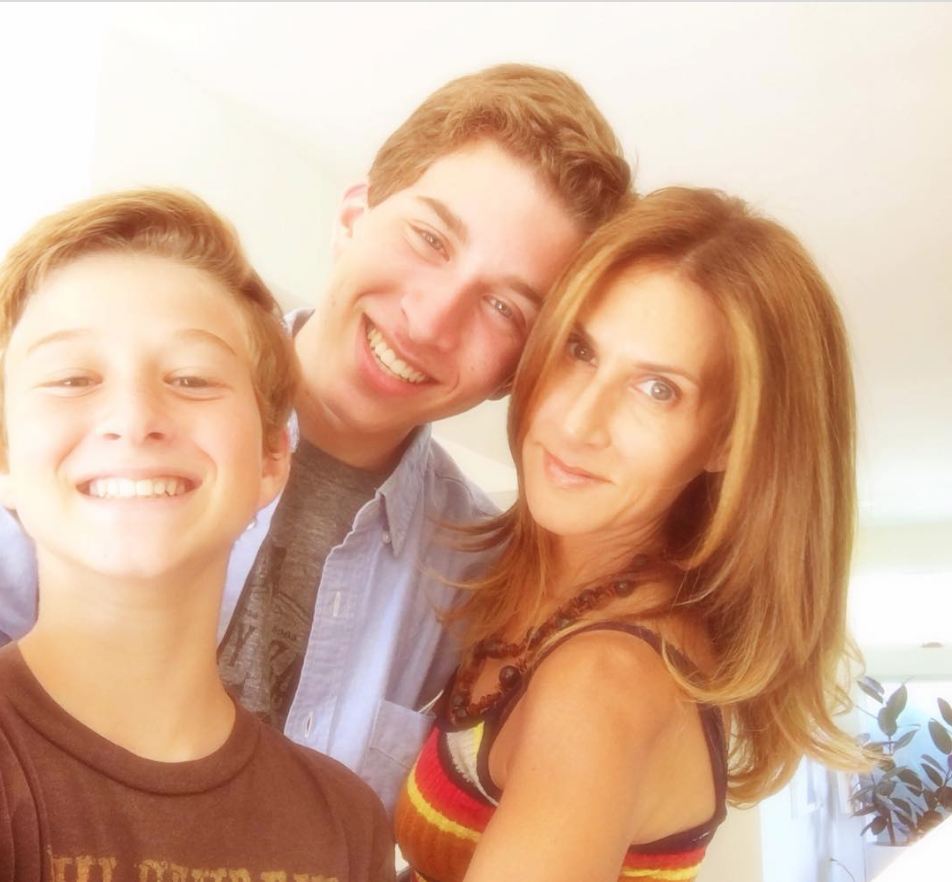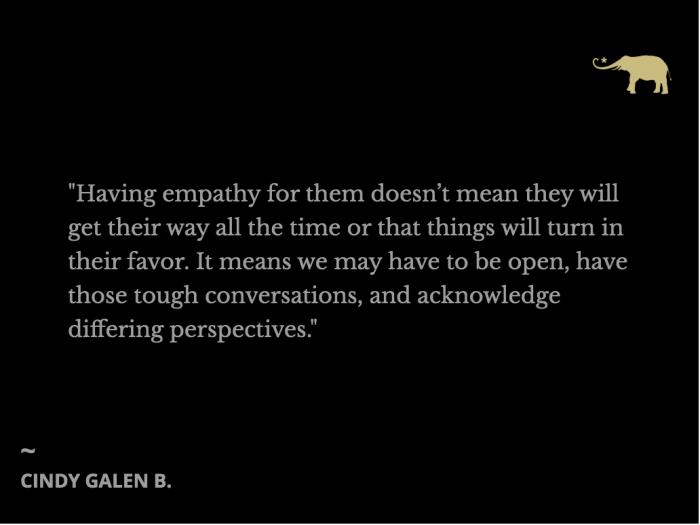“Fix her,” my mother pleaded out loud as she pulled me inside the therapist’s office.
We’d been at each other’s throats for days. This wasn’t a new thing for us, though. We bumped heads often when I was a teenager. Our fights were like raging wildfires that scorched everything in their path. Family dinners, holidays, vacations; they all went up in our smoke.
My mother assumed the therapist would validate and vindicate her. She thought the therapist would say she was right to be upset, that I should fall in line, keep quiet, and do what I was told. But the therapist didn’t endorse or discredit her parenting that afternoon. Instead, she firmly put an end to our exhausted efforts to prove the other wrong and posed a question for my mother.
She asked, “When you were your daughter’s age, who did you want to change, you or your mother?”
Without hesitating, my mother nodded her head, breathed in deeply, and through her tears, she expressed the desire for her mother to have been different. There was a sweet silence in the room after she spoke. It felt as if the slate between us had been wiped clean.
I sat there quietly, envisioning my mother as a child, desperate to be heard and understood, and I felt for her. My mother took a step back and began listening, truly listening to me. I’m sure she didn’t appreciate or agree with what I had to say most of the time, but she heard me, nonetheless. As a result, I was kinder to her for it and gentler in my approach with others.
All my screaming to be taken seriously and my need to be right—it ended right there. That’s just what empathy does for us: it lets us be felt and seen, and it washes our pain away. It creates openings for growth and the possibility to love fully—without conditions.
Most parents, whether they admit it or not, find themselves from time to time at their wit’s end with their child, especially their teenager. We may call it a phase or a moment in time. We may write it off as our child being difficult, stubborn, or temperamental. We may feel hopeless and defeated, like the oil to our child’s water. But mostly, we just try and forget the horrible things that were said and done and focus on our love for them—we carry on.
I mean, it’s hard to think that our sweet, little child with the squishy cheeks will grow up to tear our hearts out and disappoint us in the most outrageous of ways. And it is perplexing to think that our bond may be reduced to a battle of wills. But it does happen, and it happens more often than we like to say.
I’ve sat myself down in the heat of the moment and asked myself the same question my mother was asked. I’ve posed it to myself when I haven’t been in the thick of it with one of my children too.
I ask it so that I remember who I was when I was my child’s age—before life took a hold of me, tossed me around, and molded me into an adult.
I inquire so that I will parent with a sense of humility. I want to remember the imbalances and awkwardness I felt in my body and the narrowness of my thinking back then.
I ask it so I can get outside of my mind, which insists there’s a right or a wrong, and a good or a bad. I ask it so that I can come from my heart, which embraces everything as it is, with compassion and acceptance.
I don’t want to robotically repeat familial patterns or listen to outdated parental advice. And I certainly don’t want to follow a one-size-fits-all parenting manual either. I’d rather tune in empathetically to my child’s emotional needs, and asking this question has helped me to do so.
Many believe having too much empathy for our children verges on living vicariously through them. They fear it encourages an overidentification with them. They say empathy constitutes leniency. But I think “giving in” or “spoiling” a child is considerably different than understanding where our children are coming from.
Having empathy for them doesn’t mean they will get their way all the time or that things will turn in their favor. It means we may have to be open, have those tough conversations, and acknowledge differing perspectives.
It means if we are expecting our child to change, then we must be prepared to evolve as well.
Our child’s path may be different than our own, but our hearts will always find commonality. We can tap into our own history and let that insight be the bridge that brings us back to each other—again and again.
“Empathy is connection; it’s a ladder out of the shame hole.” ~ Brené Brown
~


 Share on bsky
Share on bsky






Read 25 comments and reply